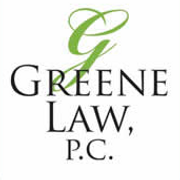
Estate planning is relevant to everyone, regardless of your current life situation. Without proper planning, your loved ones will find it difficult to access the assets you leave behind. Understanding the estate planning process will make it easier to ensure that your family benefits the most from it. If you’re entirely unfamiliar with this process, you should start by understanding two of the most important components: trusts and wills.
Estate Planning Basics
Trust
One of the most critical types of trusts for estate planning is the revocable living trust. This document can be changed throughout your lifetime. Assets are transferred into a trust and held until certain conditions are met, such as a beneficiary's age. Specifications regarding who should be in charge said assets are also included. Everything from cash bank accounts to tangible, personal property can be transferred and held.
For most people, a trust worth the investment, especially when complex, high-value assets and difficult family situations are involved. A trust also helps you avoid probate — the lengthy, legal process in which a court manages an estate following a person’s death.
Will
 Like a trust, a will deals with a person’s assets in the event of their death. However, unlike a trust, it must go through probate before it can be executed. Because it goes through the court system, any documentation then becomes public record. If you prefer to keep your last wishes private, it’s better to establish a trust. However, you can do a few things in a will that you can't do in a trust. If you have children who are under the age of 18, a will allows you to name a guardian in the event of your death, as well as a property manager for your children (if you have chosen to leave specific properties to them). Your will can also include instructions regarding your debts and taxes. For example, if you want the money from a particular bank account to be used for the remainder of a loan, you can only do so with a will.
Like a trust, a will deals with a person’s assets in the event of their death. However, unlike a trust, it must go through probate before it can be executed. Because it goes through the court system, any documentation then becomes public record. If you prefer to keep your last wishes private, it’s better to establish a trust. However, you can do a few things in a will that you can't do in a trust. If you have children who are under the age of 18, a will allows you to name a guardian in the event of your death, as well as a property manager for your children (if you have chosen to leave specific properties to them). Your will can also include instructions regarding your debts and taxes. For example, if you want the money from a particular bank account to be used for the remainder of a loan, you can only do so with a will.
If you would like to prepare a trust or will, contact Green Law PC. Located in Farmington, CT, they have more than 25 years of experience in estate planning. You can trust them to craft a solution that offers the best outcome for you, your family, and your assets. For more information on how they can help, visit their website. If you’re ready to get started, call them today at (860) 676-1336 for a free consultation.
About the Business
Have a question? Ask the experts!
Send your question

